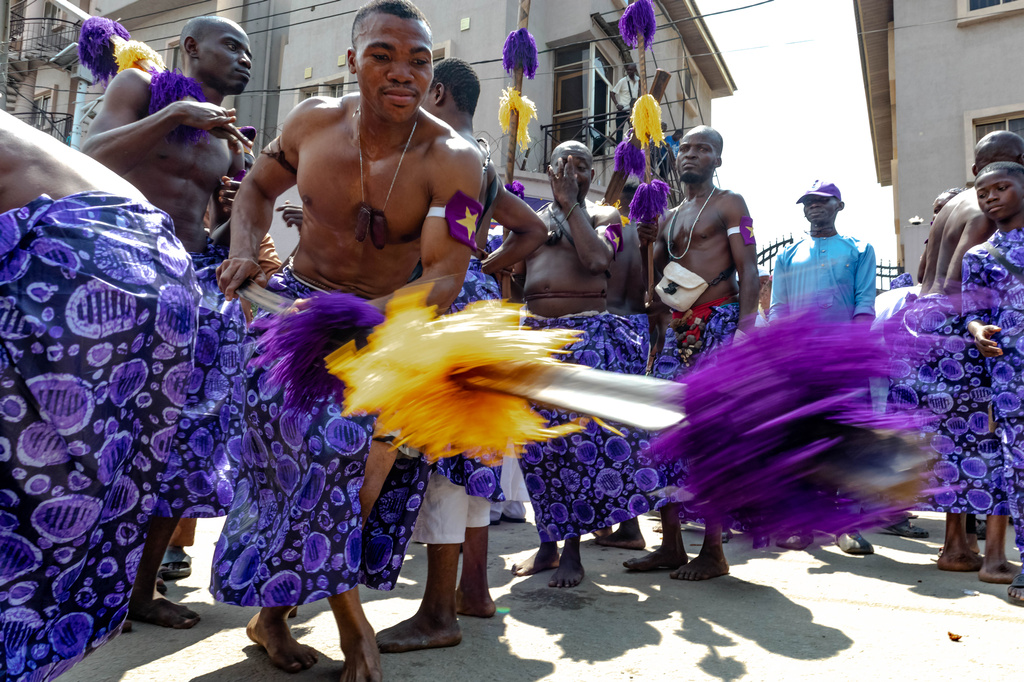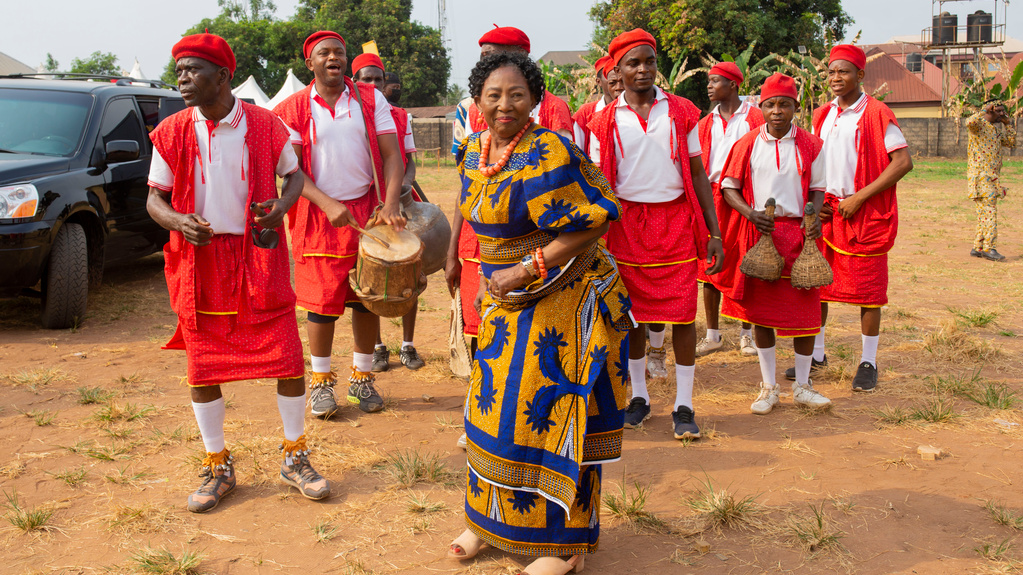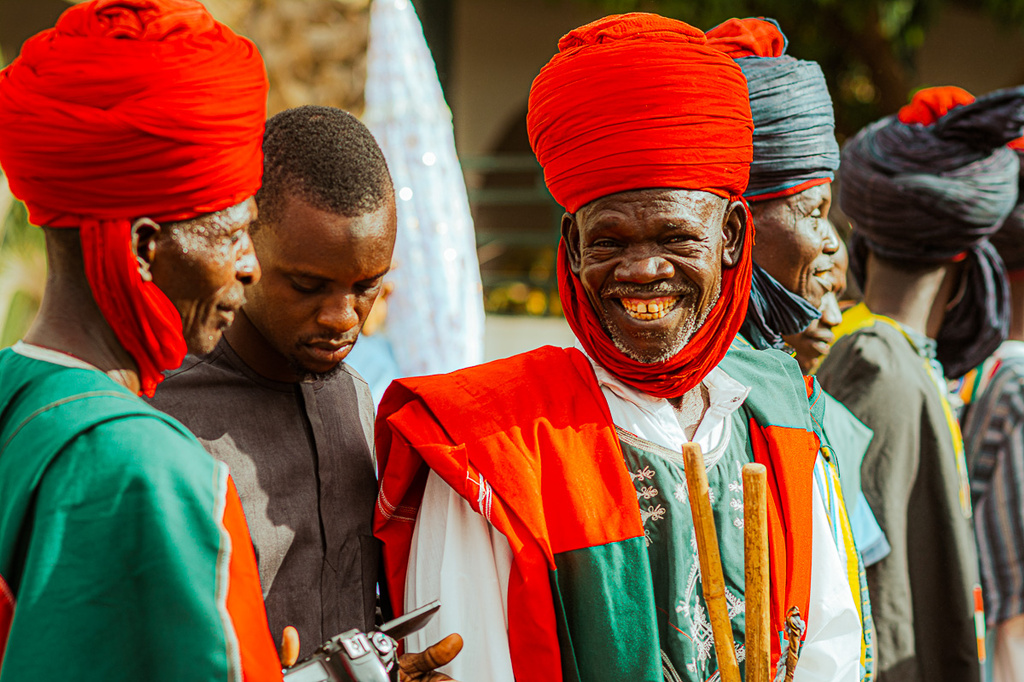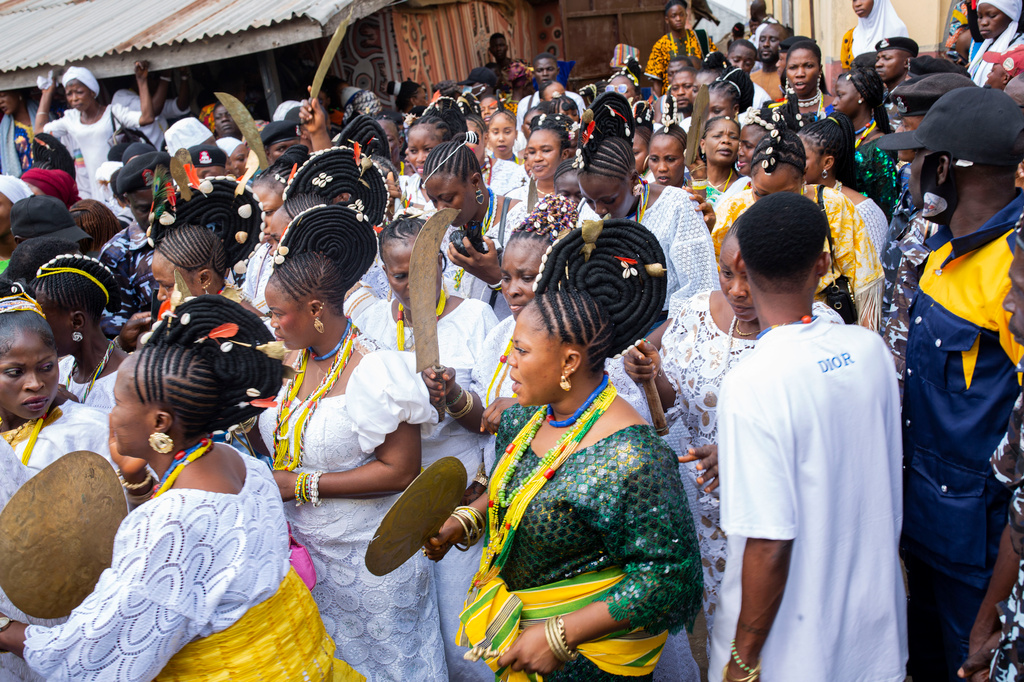Emmanuel Solate ✿ A herald for Nigerian festival culture
We welcome Emmanuel Solate to the honoured ranks of Garland perennial. We commend his tireless work in sharing Nigerian festival culture with the wider world.
Here is his story.
✿
Growing Up Between Heritage and the Lens
I have always been drawn to stories rooted in living heritage—narratives that carry the weight of memory, custom, and cultural depth. I was born in Ibadan, Oyo State, and inspired early by the works of Wole Soyinka, Chinua Achebe, D.O. Fagunwa, and the films of Tunde Kelani. I then grew up in Akure, Ondo State, surrounded by towering ìrókò trees, wild amaranth, and fields of maize and cassava. Here, nature was never just a backdrop; it was a living archive of indigenous knowledge and cultural continuity.
My childhood unfolded across villages and cities in Ondo, Lagos, and Ogun states, where year after year I was immersed in the colour, rhythm, and layered histories of Yoruba festivals. Rainy seasons and harvest times in our farming community etched deep impressions—moments that continue to fuel my research, reflection, and storytelling, grounding my work in places where tradition and nature remain inseparable.
Awakening to the Gaps in Representation
As I grew older and engaged more deeply with both local and international media, I became increasingly aware of the disconnect between how African culture is lived and how it is portrayed. Too often, what reached audiences was a compressed, exoticised, or one-dimensional view of the continent — Africa reduced to war, disease, poverty, or “tribal” spectacle, while its diversity, history, and contemporary realities were overlooked. Such portrayals frequently came with inauthentic accents, oversimplified social issues, and narratives stripped of their nuance.
One of the earliest sparks for my career came from watching Blood Diamond. While powerful as cinema, it framed Africa almost exclusively through chaos and suffering, leaving me unsettled. That moment crystallised my awareness of how often our stories are told by others — reframed for audiences far removed from our realities. It planted in me the determination to become a storyteller, cultural writer, and heritage researcher committed to portraying Africa with dignity, authenticity, and depth.
This conviction shaped my dissertation, Cultural Crossroads: Navigating Authenticity in the Portrayal of Yoruba Art and Culture in Contemporary Movies, during my Digital Film Production studies at Middlesex University, London. While there, my resolve deepened when Gangs of Lagos was released. The film’s depiction of the Eyo Masquerade, an institution that traditionally appears only for rare and momentous occasions, such as a coronation or the funeral of a Lagos dignitary, reduced it to a dramatic prop. This misrepresentation, coming from within Nigeria’s own industry, made it clear that safeguarding cultural accuracy is an urgent task not just against external narratives, but also within our own creative spaces.
The Work of Cultural Canvas
That urgency drives my work as the founder of Cultural Canvas, a pan-African archive and creative platform dedicated to safeguarding indigenous knowledge systems through writing, exhibitions, film, and public history projects. My cultural narratives on festivals such as Ọṣun-Òṣogbo, Ikeji Arondizuogu, Opobo Nwaotam, and Kano Durbar bring international visibility to endangered practices and ancestral cosmologies.
Through photography, interviews, and immersive storytelling, I work to bridge generational knowledge and connect heritage to contemporary discourse. My work honours the aesthetic, spiritual, and intellectual legacies of African communities, situating them within a global conversation. I believe that reclaiming our narratives is not only an act of preservation but also a way to ensure Africa’s cultural identity is represented with the complexity, respect, and truth it deserves.
Carrying the Vision Forward
I have always been drawn to artists and authors who make heritage feel alive—whose work allows you to walk the streets of a city during a festival or stand in the crowd as the drums rise. In my own writing, I strive to create that same immersion: to let readers hear the songs, smell the food, and feel the dust, mud, or paved arcade beneath their feet.
In 2025, I launched the Cultural Canvas Art & Festivals Exhibition in Abuja, themed Preserving Nigeria’s Cultural Heritage: Leveraging Art and Creativity for Global Impact. This work is both a celebration and a form of resistance — resisting misrepresentation, stereotyping, and the flattening of Africa’s diverse cultural identity.
My goal remains clear: to ensure that the colour, rhythm, and layered histories that shaped my life will continue to shape the lives of generations to come—authentically, unapologetically, and in our own voice.
✿
 Ìṣẹ̀ṣe Day: A resurgence of Yoruba cultural and spiritual identity - Emmanuel Solate writes about the special festival that brings together all the Yoruba deities in a day of multicoloured processions, feasting, performances, lectures, and prayer.
Ìṣẹ̀ṣe Day: A resurgence of Yoruba cultural and spiritual identity - Emmanuel Solate writes about the special festival that brings together all the Yoruba deities in a day of multicoloured processions, feasting, performances, lectures, and prayer. Nigeria’s festivals are living archives - Emmanuel Solate reflects on how his country's vibrant festivals reinvent cultural citizenship.
Nigeria’s festivals are living archives - Emmanuel Solate reflects on how his country's vibrant festivals reinvent cultural citizenship. Durbar festivals in Nigeria: How Jigawa and Ilorin are rising beyond Kano’s shadow - Emmanuel Solate heralds the revival of the Durbar festival in Kano, northern Nigeria.
Durbar festivals in Nigeria: How Jigawa and Ilorin are rising beyond Kano’s shadow - Emmanuel Solate heralds the revival of the Durbar festival in Kano, northern Nigeria.  Ègbáliganza 2025: Traditional regalia honours of the ancestors - Emmanuel Solate documents a festival that celebrates the role of Lisabi Agbongbo Akala in freeing the Egba people.
Ègbáliganza 2025: Traditional regalia honours of the ancestors - Emmanuel Solate documents a festival that celebrates the role of Lisabi Agbongbo Akala in freeing the Egba people. Ọ̀ṣun Òṣogbo Festival: A sacred cultural tradition thrives in Nigeria today - Emmanuel Solate describes a 600-year-old festival in Nigeria dedicated to the Yoruba goddess of water.
Ọ̀ṣun Òṣogbo Festival: A sacred cultural tradition thrives in Nigeria today - Emmanuel Solate describes a 600-year-old festival in Nigeria dedicated to the Yoruba goddess of water.
